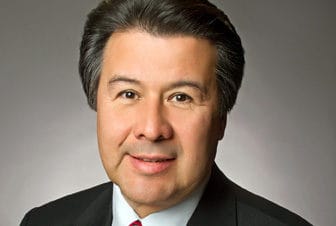COMMENTARY: This special legislative session will begin to solve the state’s immediate budget crisis by balancing the budget for the fiscal year that ended three months ago and by closing tax loopholes and making what will likely be painful cuts to the current year’s budget.

Courtesy photo
Pete Campos
Sadly, as difficult as it will be to solve the budget crisis, solving the economic crisis plaguing the state will require significantly more cooperation and leadership than we’ve seen.
The state budget is an annual reflection of what the people, through their elected representatives, collectively believe are the state’s priorities and vision: educated children, safe communities, healthy people, and a strong, growing economy. The budget also must reflect reality and, just like our family budgets, cannot spend more money than is available.
Unfortunately, that’s exactly what the state did last fiscal year by hundreds of millions of dollars. While lots of people — including some who are no longer even in public service — have been and will continue to be blamed for causing that shortfall, the fact is that the Legislature will fix it during the special session.
Similarly, the Legislature will ultimately fix the current year’s budget, which only three months into the fiscal year is already projected to spend $458 million more than what it will take in. The spending cuts that will be required, given the reality that tax increases will not be considered, will undeniably cause pain and suffering. We’re well past trimming the fat or squeezing the waste from state government; the state’s core mandate — to educate our children, keep our communities safe, and support those less fortunate than us — will go unfulfilled.
We will try to mitigate the effect of some spending cuts by closing tax loopholes, but given the unwillingness of some to even consider raising taxes, we must accept that harsh reality.
It is also why issues such as reinstating the death penalty — a sentence rarely imposed in New Mexico — are being raised during the special session. Emotionally charged, easy-to-understand issues like the death penalty distract all of us from less interesting, harder-to-understand but equally grave issues, like balancing the budget and fixing New Mexico’s economy.
Restoring New Mexico’s economy to where it was before 2008 will require a level of cooperation and leadership we have yet to see. New Mexico’s second-worst-in-the-nation unemployment rate and anemic job growth will only be reversed by a genuine commitment to educating our children, reducing crime (and not just by punishing criminals more severely, but by preventing crime in the first place), and maintaining our roads, bridges and other infrastructure.
Tax breaks for businesses are nice for businesses, but they do nothing to ensure that those businesses can hire educated and motivated workers, or ensure that business owners and employees can live and work in safe communities, or ensure that the businesses can rely on good roads to ship their goods or bring customers to their doors.
A tax break has yet to educate a child or stop a crime.
We need a stable, efficient and accountable government. Integrity and transparency must be guiding principles. We must engage now in open, honest discussions about where we as a state want to be in five, 10 and 20 years and, perhaps more importantly, how we’re going to get there.
It should be starkly obvious and painfully clear that the path we’ve been on will not lead us to a brighter future in which New Mexico’s children are raised in healthy, happy homes, attend excellent public schools and colleges and universities, get well-paying jobs in our state and raise families of their own to continue the cycle. We all share the responsibility of finding and guiding the millennials to this path because when our neighbors are better off, we’re all doing better.
Pete Campos, a Democrat from Las Vegas, represents District 8 in the New Mexico Senate.